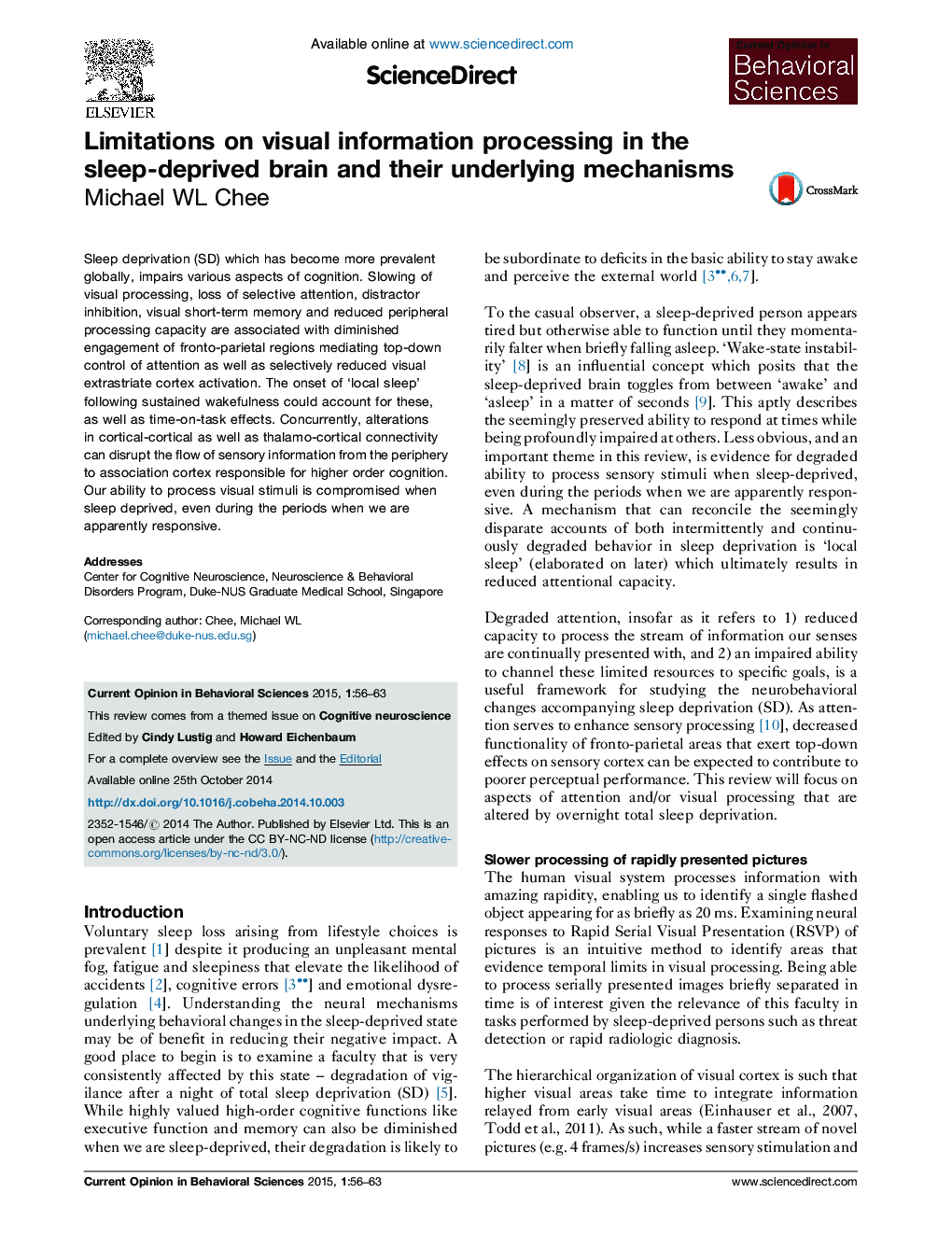| کد مقاله | کد نشریه | سال انتشار | مقاله انگلیسی | نسخه تمام متن |
|---|---|---|---|---|
| 6260886 | 1613089 | 2015 | 8 صفحه PDF | دانلود رایگان |
- Sleep deprivation (SD) impairs selective attention, VSTM and slows picture processing.
- SD reduces distractor suppression and peripheral processing capacity.
- SD reduces task-related activation of fronto-parietal and extrastriate cortices.
- SD intensifies time-on-task effects.
- Local sleep and altered functional connectivity are putative mechanisms.
Sleep deprivation (SD) which has become more prevalent globally, impairs various aspects of cognition. Slowing of visual processing, loss of selective attention, distractor inhibition, visual short-term memory and reduced peripheral processing capacity are associated with diminished engagement of fronto-parietal regions mediating top-down control of attention as well as selectively reduced visual extrastriate cortex activation. The onset of 'local sleep' following sustained wakefulness could account for these, as well as time-on-task effects. Concurrently, alterations in cortical-cortical as well as thalamo-cortical connectivity can disrupt the flow of sensory information from the periphery to association cortex responsible for higher order cognition. Our ability to process visual stimuli is compromised when sleep deprived, even during the periods when we are apparently responsive.
Journal: Current Opinion in Behavioral Sciences - Volume 1, February 2015, Pages 56-63
